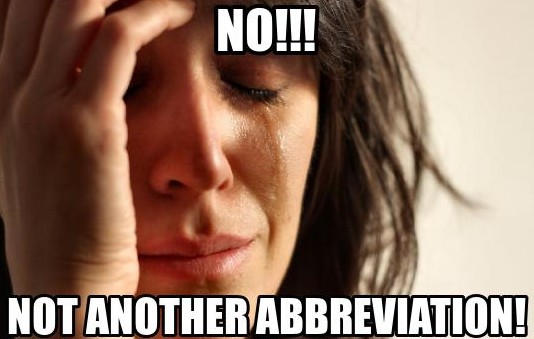Abbreviations, Hate Em’ Love Em’ Use Em’
Don’t Hate, Abbreviate!
The English language is an incredibly interesting language. While it’s certainly based in Latin in many ways, by now the language has borrowed so many words from so many different languages that it only bears the most basic similarity to the Latin it once came from. The old joke about English is that it doesn’t merely borrow words from other languages, but mugs languages in dark alleys and roots through their pockets for spare words. This is not far off from the truth, as English is versatile enough to adopt a wide variety of words from a wide variety of languages.
One of the most interesting aspects of the English language is it’s ability to use abbreviations. Abbreviations are words that are the shortened form of a word. English is not alone in it’s use of abbreviations, of course, but it’s one of the languages that makes the most use of it. Abbreviations are shortened forms of longer words.
For example, the abbreviation for the word “mister” is Mr. The period is important, because without it, it’s impossible to tell in the English language that you’re making an abbreviation instead of simply leaving a word completely misspelled.
If you’re curious about all the different abbreviations you can find, there’s actually an editing guide that most people use. By the name of, The Chicago Manual of Style, and it’s used by a wide number of different proof readers and editors. It’s a wonderful guide, and many newspapers and journalistic outlets rely on it to make sure that their use of abbreviations and other grammar is standard.
Which Words Can be Abbreviated?
It’s difficult to know precisely which words can and can not be abbreviated. In general, any kind of title can be abbreviated. For example, the title of Reverend can be abbreviated into Rev., while the title of Doctor is abbreviated into Dr.
If you’re uncertain whether or not a word can be abbreviated with a standard abbreviation, it’s best to not try to abbreviate it. If the abbreviation can’t be understood by the average reader, then it’s not one that should be used. This is why many places use the Chicago Manual of Style, because it allows them to know for certain what all the standard abbreviations are.

Some people are adamant against the use of abbreviations.
If you ever come across an abbreviation and you’re not certain what it means, often times you can tell via context. If, for example, you weren’t certain what the abbreviation DDS. means, you can then look at what they’re talking about and see that they’re mentioning dentistry. Eventually, you can put together the fact that DDS. stands for Doctor of Dentistry.
At the end of the day, the English language is a wonderful, interesting language with all sorts of ins and outs. There are simply so many little details of how the English language works that learning all of them could be a matter of years or even decades of studies. Hopefully, this little bit gives you a little more information on how the English language works.
No comments yet.